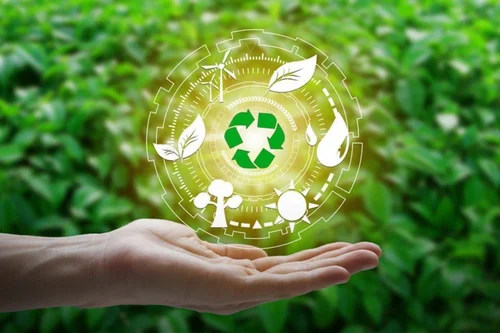Table of Contents
- The Evolution of Waste Management Practices
- The Science of Recycling and its Global Footprint
- The Economics of Waste Management
- E-Waste: A Modern Challenge
- The Benefits of Composting for Soil Health
- Hazardous Waste Disposal and Public Safety
- The Role of Government in Regulating Waste Management
- Public Awareness and Participation
- The Future of Waste Management
Key Takeaways
- Efficient waste management systems are pivotal for sustainability and can drive substantial environmental improvements.
- Recycling serves a crucial role globally, cutting back the depletion of irreplaceable resources and reducing greenhouse gas emissions.
- Economic incentives and strategic investments in waste management can translate into significant long-term savings and environmental benefits.
- E-waste poses new challenges but also presents opportunities for innovation in recycling technologies.
- Composting enriches soil and reduces the need for chemical fertilizers, contributing to more sustainable agricultural practices.
- A successful and comprehensive waste management strategy requires a collaborative effort between governments, businesses, and the public.
The Evolution of Waste Management Practices
The historical context of waste management reveals a linear progression from simplistic, often harmful practices to nuanced, environmentally conscious strategies. Municipal and commercial waste was frequently discarded in bygone eras in open dumps or waterways, leading to severe health and environmental risks. Advancements in understanding ecological balance have spurred the transformation towards more sustainable disposal methods. This evolution underscores the significance of eco-friendly commercial waste services in shaping public health and preserving natural ecosystems.
The Science of Recycling and its Global Footprint
The systematic recycling process encompasses numerous steps, from the initial sorting to the final act of repurposing materials. It is a cornerstone in the fabric of sustainable waste management. Globally, recycling mitigates the consumption of raw materials, conserves energy, and reduces greenhouse gas emissions. For instance, recycling aluminum saves up to 95% of the energy required to produce it from raw materials. This conservation is vital in curtailing the progression of climate change.
The Economics of Waste Management
Waste management is not solely an environmental concern but intrinsically linked to economic ramifications. Regions that invest in efficient waste systems reap the benefits of reduced operational costs and increased resource recovery. The fiscal prudence of recycling and waste minimization is evident, as these activities circumvent the economic burden of landfills and waste incineration. Long-term economic projections underscore the viability of investing in innovative waste management strategies, which protect the environment and foster economic growth and job creation.
E-Waste: A Modern Challenge
In our technology-driven world, electronic waste, or e-waste, has surfaced as a prevalent challenge, growing at an alarming rate of global concern. Disposing outdated electronics is a complex undertaking, mainly due to the hazardous materials and valuable resources they harbor. Proper handling, through recycling and refurbishment, can prevent environmental contamination and recover precious metals like gold and silver. Rigorous analysis highlights the intricate dynamics of e-waste and the critical need for robust regulation and progressive recycling technologies.
The Benefits of Composting for Soil Health
Composting, the biological decomposition of organic matter, has emerged as a critical component of sustainable waste management. By diverting food waste and other organic materials from landfills to composting facilities, we reduce methane emissions and create a natural, potent fertilizer for agricultural and landscaping applications. Incorporating compost into soil enhances its quality, supporting robust plant growth and contributing to the health of entire ecosystems. Personal and community composting initiatives symbolize a proactive step towards a sustainable, waste-conscious future.
Hazardous Waste Disposal and Public Safety
Proper disposal of hazardous waste is not just an environmental concern but a matter of public health. Safe management is required to prevent accidents and long-term harm, including industrial byproducts, medical waste, or household chemicals. Specialized waste treatment facilities and strict regulatory measures ensure that these dangerous substances are handled to safeguard the well-being of current and future generations. For society’s safety, embracing policies and practices that mandate and facilitate proper hazardous waste disposal is non-negotiable.
The Role of Government in Regulating Waste Management
Governmental bodies play a pivotal role in orchestrating effective waste management systems. Governments can ensure that waste services adhere to the highest environmental protection standards through statutory regulations and oversight. Legal mandates can incentivize waste generation reduction, encourage the adoption of recycling programs, and establish guidelines for proper disposal methods. Governmental interventions can compel industry compliance and entice innovation within the sector, paving the way for cutting-edge solutions to waste management challenges.
Public Awareness and Participation
Despite advancements in technology and policy, the ultimate success of waste management initiatives is deeply rooted in public behavior. Awareness campaigns can enlighten individuals about the environmental impacts of their consumption habits and the benefits of proper waste disposal. Public participation can significantly amplify the effectiveness of waste management strategies. When informed citizens actively engage in waste reduction, reuse, and recycling efforts, they contribute immensely to the collective goal of environmental preservation and sustainable living.
The Future of Waste Management
Looking ahead, the trajectory of waste management is geared towards innovation and sustainability. Technological advances, such as artificial intelligence and machine learning, are revolutionizing the sorting and processing of recyclables. Innovations in biodegradable materials and waste-to-energy technologies will likely diminish our reliance on traditional disposables and landfills. The consistent pursuit of sustainable waste practices is instrumental in fostering a resilient ecological future. By remaining conscientious and forward-thinking in our approach to waste management, we are crafting a legacy of environmental stewardship for subsequent generations.
Keep an eye for more news & updates on VerifiedZine!



